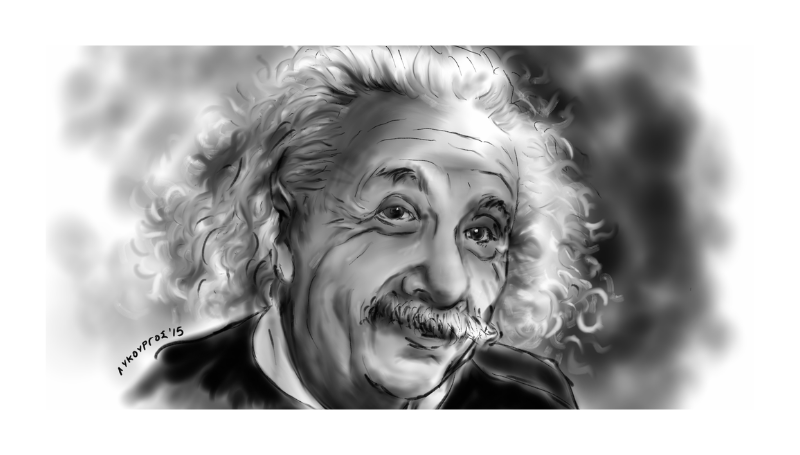Yair Rosenberg
Tablet, Apr. 16, 2025
“International policies in the Middle East should be dominated by efforts to secure peace for Israel and its neighbors. This would conform with the universal ideals of peace and brotherhood which have been the most significant contribution of the people of Israel in its long history.”
On Yom Ha’atzmaut, Israel’s Independence Day, in 1955, Albert Einstein was scheduled to address the American people on ABC, NBC and CBS. His speech–a passionate plea for peace and defense of the fledgling state of Israel–had been written in conjunction with the Israeli consulate and famed Ambassador Abba Eban. But on April 18, eight days before Einstein was to deliver it, the physicist died suddenly at the age of 76.
Newly published documents from the Israel State Archive and the Albert Einstein Archive at Hebrew University allow us to read the last working draft of Einstein’s speech, 58 years after he had hoped to give it.
“This is the seventh anniversary of the establishment of the State of Israel,” Einstein opened. “The establishment of this State was internationally approved and recognised largely for the purpose of rescuing the remnant of the Jewish people from unspeakable horrors of persecution and oppression.”
“Thus, the establishment of Israel is an event which actively engages the conscience of this generation,” he continued. “It is, therefore, a bitter paradox to find that a State which was destined to be a shelter for a martyred people is itself threatened by grave dangers to its own security. The universal conscience cannot be indifferent to such peril.”
Einstein had choice words for those who placed disproportionate blame on Israel for its tensions with its Arab neighbors. “It is anomalous that world opinion should only criticize Israel’s response to hostility and should not actively seek to bring an end to the Arab hostility which is the root cause of the tension.”
From this, Einstein segued into a critique of the United States’ and Soviet Union’s “one-sided military pacts and arms agreements” with Arab states, a Cold War policy through which each aimed to extend their influence in the Middle East.
Instead, Einstein argued, “International policies in the Middle East should be dominated by efforts to secure peace for Israel and its neighbors. This would conform with the universal ideals of peace and brotherhood which have been the most significant contribution of the people of Israel in its long history.”
Einstein’s own relationship to Zionism was complex. He toured the United States to raise money with future Israeli President Chaim Weizmann for the World Zionist Organization. He delivered the first lecture at Hebrew University. He was even offered the Israeli presidency (he declined). But Einstein was also ambivalent about the idea of a Jewish nation-state, preferring a binational arrangement with Mandatory Palestine’s Arabs. And he was not hesitant to critique Israel’s policies and military actions in public forums. …SOURCE


